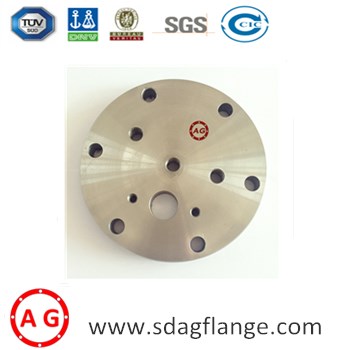How CNC Machines Improve the Manufacturing of ASME Standard Pipe Fitting Flanges
2024-07-01
The advent of CNC (Computer Numerical Control) machines has revolutionized the manufacturing industry, particularly in the production of ASME (American Society of Mechanical Engineers) standard pipe fitting flanges. These flanges are essential components in piping systems, ensuring secure connections and maintaining the integrity of the system under various conditions. This blog explores how CNC machines have enhanced the manufacturing process of ASME standard pipe fitting flanges.
Precision and Consistency
One of the most significant improvements brought by CNC machines is the precision and consistency in manufacturing. ASME standard pipe fitting flanges require tight tolerances and exact dimensions to function correctly. CNC machines, controlled by computer programs, can achieve these precise measurements repeatedly. This level of precision ensures that each flange meets the stringent ASME standards, reducing the risk of leaks and failures in piping systems.
Enhanced Production Efficiency
CNC machines greatly increase production efficiency. These machines can operate continuously with minimal human intervention, significantly reducing downtime and increasing output. The automated nature of CNC machining allows for faster production cycles compared to traditional machining methods. As a result, manufacturers can produce larger quantities of ASME standard pipe fitting flanges in a shorter amount of time, meeting high demand without compromising quality.
Superior Material Handling
CNC machines excel in handling a wide range of materials, including the various metals used in ASME standard pipe fitting flanges such as stainless steel, carbon steel, and alloys. This versatility ensures that flanges can be produced from materials that meet the specific requirements of different applications and environments. The ability to work with diverse materials also allows for customization and adaptation to specific client needs.
Reduced Waste and Cost Efficiency
The precision of CNC machines not only ensures high-quality output but also reduces material waste. By optimizing the machining process, CNC machines can minimize the amount of scrap produced, leading to cost savings on raw materials. Additionally, the efficiency and speed of CNC machining reduce labor costs and increase overall productivity, making the manufacturing process more cost-effective.
Advanced Quality Control
CNC machines are often integrated with sophisticated quality control systems. These systems monitor the machining process in real-time, detecting any deviations from the specified parameters and making necessary adjustments. This integration ensures that every ASME standard pipe fitting flange produced meets the required standards. The ability to maintain high quality consistently reduces the need for rework and rejects, further enhancing production efficiency.
Flexibility and Customization
CNC machines offer remarkable flexibility in manufacturing. The computer programs controlling these machines can be easily modified to produce different sizes and types of ASME standard pipe fitting flanges. This adaptability allows manufacturers to quickly switch between production runs and customize products according to specific customer requirements. The capability to produce customized flanges enhances the manufacturer's ability to cater to diverse market needs.
Improved Safety and Reliability
The automation of CNC machines improves safety by minimizing the need for manual intervention. Operators are less exposed to potential hazards associated with traditional machining processes. Additionally, the reliability of CNC machines ensures consistent production quality, reducing the risk of producing faulty flanges that could compromise the safety and integrity of piping systems.
Environmental Benefits
Modern CNC machines are designed with energy efficiency and environmental sustainability in mind. These machines consume less energy and produce less waste compared to traditional machining methods. The reduction in material waste and energy consumption aligns with the growing emphasis on sustainable manufacturing practices, benefiting both the environment and the manufacturer's bottom line.
Conclusion
CNC machines have significantly improved the manufacturing of ASME standard pipe fitting flanges by providing unparalleled precision, efficiency, and versatility. Their ability to produce high-quality flanges consistently, handle a variety of materials, reduce waste, and offer customization options makes them invaluable in the modern manufacturing landscape. By leveraging the advanced capabilities of CNC machines, manufacturers can ensure the production of reliable, high-performance flanges that meet the stringent standards set by the ASME, ultimately contributing to safer and more efficient piping systems.



